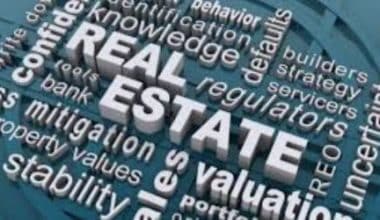Can someone with terrible credit obtain a mortgage? That might be doable with some lending programs and lenders, especially if you have a sizable down payment, can demonstrate a sizable cash reserve, and have a low debt-to-income ratio. You have come to the right place if you are looking for a way to get a mortgage with a low credit score including refinancing.
Come along
A Mortgage With a Low Credit Score
A low credit score for a mortgage is one that prevents you from obtaining a loan. It only allows you to do so at a higher cost or necessitates a higher down payment in order to be approved. The type of loan you’re asking for—conventional, FHA, VA, or USDA—will determine what’s deemed “poor.” According to Ellie Mae, a provider of digital solutions for mortgage lenders, the majority of successful homebuyers—nearly 93%—have credit scores of 650 or higher.
You can still qualify for a mortgage despite having a low credit score provided you have a reliable source of income, little debt relative to your income, and a sizable down payment. A score of less than 500, however, will very probably result in your rejection. A recent bankruptcy or foreclosure can also significantly lower your score and prevent you from obtaining a loan for at least one year and possibly for a number of years.
Low Credit Score Costs
A credit score of 620 to 639 might cost you tens of thousands of dollars more over the course of 30 years on a 30-year fixed-rate mortgage for $150,000 than one of 760 or higher. Yet, historically speaking, 4.5% is a fantastic interest rate. If you have low credit, there has rarely been a more cheap time to obtain a mortgage.
5 Tips for Getting a Mortgage with Bad Credit
- Understand your choices. What about a VA, USDA, or FHA loan if you don’t meet the requirements for a standard mortgage?
- Don’t be quick to give up. Before you get a lender’s yes, you can get a lot of noes.
- Speak with a mortgage broker. They could be able to recommend lenders who will work best with your situation. (Mortgage brokers are paid by lenders; borrowers are not charged for their services.)
- Improve your credit for a few months before submitting a mortgage application. Your score will increase significantly if you pay off high-balance credit cards, make on-time payments, and dispute any inaccuracies on your credit report.
- A 10% down payment should be saved up. When you have more at stake, lenders will view you as being less risky.
Getting a Mortgage with Low Credit Score
It is possible to obtain a mortgage despite having poor credit, but you may have to pay higher interest rates and put down a bigger down payment. Poor credit borrowers can get mortgages, and certain lenders specialize in providing them. Mortgages for those with “bad credit” are just like conventional mortgages, with the exception that they’re more likely to have high-interest rates and a smaller borrowing cap. In addition, you might be required to put down a bigger deposit than the standard 5–10%, at least 20–25% of the property’s worth. This is because a lender may consider a borrower with a low credit score to be a significant risk. Generally speaking, the greater your chances of being approved and receiving cheaper loan rates, the higher your credit score.
Can I Remortgage with Bad Credit?
Keep up with your monthly payments to demonstrate to the lender that you’re a responsible borrower if you currently have a mortgage and are seeking a remortgage or refinance with terrible credit. The lender will also want to know what proportion of your income your repayments represent and how they affect your overall outgoings. They might also take a look at how much of your house you have already paid off.
How Your Credit Score Can Aid in Your Mortgage Application
Checking your credit score might help you understand how potential lenders may see you before you apply for a mortgage. It is based on information from your Experian Credit Report, which is one of the elements lenders may use when determining whether to accept you or not.
Lenders like to work with borrowers who can make timely monthly payments and maintain control over their overall debt. Your credit score should rise over a short amount of time if you manage straightforward credit accounts like a credit card, a mobile phone contract, and some household bills successfully. Keep in mind that not all lenders employ the same precise criteria, and they may calculate scores using alternative criteria.
Can I Get a Mortgage With a Low Credit Score
Lenders will look at your credit history when you apply for a mortgage to determine how well you handle your money. They’ll also need to see your earnings, monthly expenses, and savings, as well as how much you save. This ensures you can afford monthly payments, especially if interest rates rise or your income drops.
Getting a Mortgage With a Low Credit Score Rules
It is possible to obtain a mortgage despite having bad credit, but it helps to present yourself favorably. That entails maintaining your credit score and making wise financial decisions which include:
- By making all of your regular payments, such as utility bills and credit card payments, on time and in full, you may demonstrate to lenders that you are a trustworthy borrower.
- Evaluate your spending, strive to save money where you can, and maintain a regular monthly budget. At the end of each month, try to have some money left over.
- To maintain accuracy and currency, review your credit report frequently. If you find any errors, contact the lender or Experian and we’ll handle it for you.
- Consider adding a note of correction to your report so that potential lenders may see it if you have a credible justification for previous financial troubles, such as unemployment or illness.
- There aren’t many mortgages available at 95–100% loan to value, so only focus on homes you can actually afford.
- If you can’t make monthly payments, you may require a guarantor, usually a parent or elder family.
- Experian allows you to verify if you qualify for a mortgage. We can show you which lenders are most likely to accept you whether you’re a first-time buyer, moving, or considering a remortgage.
- Keep in mind that you’ll also need to have a sizable deposit saved up—at least 10% to 20% of the property’s cost.
Refinancing Mortgage with Low Credit Score
The market is improving whether you want to refinance in order to access your home equity or transfer from an adjustable-rate mortgage to a fixed-rate mortgage. But even the most recent wave of rate cuts might not be all that helpful for people with poor credit.
#1. To Begin With, Consider Your Own Mortgage Lender.
The goal of mortgage lenders is to establish connections with borrowers. If you want to refinance but you have low credit, you will need to take some time to discover a solution that fits your particular financial situation. Since you are currently a client of your current lender or loan servicer, that is where you should start. Contact the officer or employee you initially spoke with if your mortgage is held by a financial institution, if they are still employed there. It’s the benefit of the doubt that you actually desire. Your application may be approved or rejected if a lender considers your debt-to-income ratio (DTI), loan-to-value ratio (LTV), and other variables.
#2. Check Out an FHA Streamline Refinance
The FHA streamline refinance program can be a fantastic choice if you need to refinance and have an FHA loan. According to the U.S. Department of Housing and Urban Development, the average credit score of a borrower who refinanced an FHA loan between October and December of 2021 was 657. The required credit score to refinance is 580. But, lenders may authorize refinancing for customers with credit scores as low as 500 who also have a home equity of at least 10%.
#3. Explore an FHA Rate-and-Term Refinance
Any borrower may apply for an FHA rate-and-term refinance, even though an FHA streamlined refinance is only available to current FHA borrowers. If your mortgage has a high-interest rate, you may find it advantageous to do so. A new appraisal, a credit check, and the requirement that the mortgage being refinanced be current for the month due all add to the process’ additional paperwork. The goal of an FHA rate-and-term refinance, like the streamlined program, is to lower your monthly housing costs; it is not a cash-out program. Your current mortgage and transactional expenses must be covered entirely by the funds. Second and third mortgages may, however, be included in the refinanced amount using this procedure.
#4. Apply for a VA Streamline Refinance or a VA-Backed Cash-out Refinance Loan
With a no-hassle Interest Rate Reduction Refinance Loan (IRRRL), commonly referred to as a VA streamlined refinancing, you can refinance an existing VA-backed home loan even if you have poor credit. IRRRLs often demand that you submit financial documents like your most recent pay stubs, two years’ worth of W-2s, and federal income tax returns. This option’s lenders will also demand a home appraisal.
#5. Make use of the USDA Streamlined Assistance Program.
Because there isn’t a credit check necessary, the USDA’s Streamlined Help program may be the best choice for a refinance with negative credit if you qualify. Instead, anyone who has paid all of their mortgage payments over the last 12 months on time and has a loan via or supported by the USDA is eligible.
#6. Consider a Loan for Portfolio Refinancing.
A portfolio loan is another refinancing choice if you have poor credit. With banks and mortgage brokers, you can receive a portfolio loan, so named because the original lender holds (and frequently services) the loan rather than selling it to another party. The lender sets its own rules for the loan, which may be more lenient than conventional refinance requirements. If you’ve been a long-time mortgage or bank customer, or if the lender wants your business, you’re more likely to get approved for a portfolio loan.
#7. Get a Co-Signer.
Becoming a co-borrower might drastically improve your situation if poor credit is keeping you from refinancing and locking in a reduced rate. Even among relatives or friends, co-signing a mortgage is a commercial transaction. The lender has more security if the co-signer has good credit and substantial financial resources. You must persuade your co-signers that you have the financial means to repay the loan and that you will prioritize repaying it over other responsibilities because they worked hard to earn their money and credit.
Second Mortgage with Low Credit Score
A typical mortgage is just a home loan with your property serving as collateral. What is a second mortgage, then? It refers to any loan that, in addition to your initial mortgage, is backed by your house. Typically, a mortgage lender would only permit you to use a second mortgage to borrow up to 80% to 85% of the equity in your house.
The following are some typical forms of second mortgages:
- Home equity loans – A home equity loan is an installment loan. It enables you to take out a one-time loan against the equity of your house. A home equity loan requires periodic payments for a predetermined period of time after you receive it. Home equity loans frequently feature substantially cheaper interest rates than the majority of credit cards and other kinds of loans.
- Home equity lines of credit (HELOC): A HELOC is a type of revolving credit that enables you to take out a monthly loan against your equity up to a certain limit. You’ll be required to pay back the amount you borrowed plus interest at the end of the month. HELOCs are frequently used to finance home improvements or debt repayment. Nonetheless, a lot of people end up using HELOC to pay off their mortgage. This choice is frequently mistaken for a home equity loan, but there are some significant distinctions between a home equity loan and a HELOC.
How to Get a Second Mortgage While Having Bad Credit
While it’s crucial, your credit score is not the only element considered by lenders when determining whether you qualify for a second mortgage. You might be able to make up for your poor credit by:
- low ratio of debt to income
- high income each month
- Equity in your home that is significant
There is a significant chance your lender may charge you a higher interest rate to make up for your poor credit, even if you meet these exact requirements and are approved for a second mortgage.
Recommendations for Obtaining a Second Mortgage With Poor Credit
Without a doubt, the following actions will increase your chances of being approved for a second mortgage:
- Paying down debt might lower your debt-to-income ratio and make it easier for you to qualify for a second mortgage.
- Correcting any errors on your credit report – Your credit score may be negatively impacted by mistakes in your credit report. You can quickly raise your credit score again by disputing these inaccuracies with the credit bureaus.
- enhancing your credit score by taking action – The only approach to get around negative credit restrictions is to repair it. After a few months, you might be able to raise your credit score by doing the following:
- paying credit card bills on time
- settling any debts that have been referred to collections
- avoiding applying for new credit
- Adding your name as an authorized user to another person’s credit account
Alternatives to a Second Mortgage with Bad Credit
A second mortgage isn’t your only choice if your objective is to draw cash from the equity in your property. The following are some suitable substitutes:
#1. Mortgage Refinancing With Cash Out
When you replace your previous mortgage with a new one for a bigger loan amount, this process is known as cash-out refinancing. You can then keep the difference and use the money for other things. You typically need a sizeable amount of equity in your house to be eligible for this sort of financing.
#2. Reverse Mortgage
You might be qualified for a reverse mortgage if you’re 62 or older and have at least 50% equity in your present residence. With this kind of equity loan, you can take out a portion of the equity in your house as a lump sum, a line of credit, or a monthly income stream.
#3. Streamline Refinance
If you have an FHA loan, you might be able to refinance more quickly. You can obtain a loan without providing proof of income if you refinance in this way, as neither a credit history check nor any other kind of income verification is necessary. All you need to do is keep up with your mortgage payments.
Can You Get a Mortgage with a Credit Score of 550?
It is feasible to get a loan with a credit score of 550, albeit it can be more difficult to locate a lender who will deal with you.
Where Can I Get a Loan with a 500 Credit Score?
If you’re looking for one, several lenders offer personal loans to borrowers with a credit score of 500. Through some of these businesses, you can borrow up to $10,000. You can test out MoneyMutual, CashUSA, and CreditLoan as three of these businesses.
Can I Get a Loan with a Very Low Credit Score?
Several banks, credit unions, and internet lenders provide loans to those with bad credit, but each organization has a different standard for who qualifies as a “creditworthy borrower.”
What Credit Score Is Considered Very Poor?
A credit score of 600 or below is typically regarded as having poor credit. Also, if your credit is bad, you can be eligible for a loan, but the terms and interest rates might not be good. Fair credit ratings are those that fall between 601 and 669.
What Is the Easiest Type of Loan to Get with Bad Credit?
Payday loans, auto title loans, pawn shop loans, and personal installment loans are likely the loans that are simplest to be approved for.
Related Articles
- Ten Ways Effective Data Management Can Boost Your Productivity
- RATE AND TERM OPTION: Explained
- HOW MANY TIMES CAN YOU REFINANCE YOUR HOME: Updated
- HOW SOON CAN YOU REFINANCE A MORTGAGE IN 2023?
- How Much Does It Cost To Refinance Mortgage In 2023





